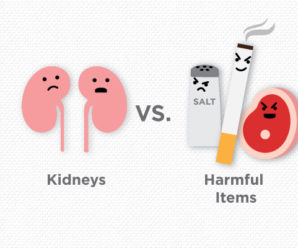Vaccines are an effective way to prevent certain infectious diseases and boost the body’s natural immune response.
Parents having concerns around vaccines is understandable. There are many vaccines children should receive by age six, according to The Centers for Disease Control and Prevention. Distrust in vaccines usually stems from concerns over risks of long-term side effects.
Many people understand vaccinations are important. However, there is no shortage of vaccination myths or misinformation that continue to circulate.

Delaying vaccines until children are older puts infants and toddlers at a greater risk for potentially life-threatening diseases.
Myth: Vaccines cause autism.
“While the factors that cause autism are unknown, studies have identified symptoms of autism in children before they receive certain vaccines, including the measles, mumps, rubella (MMR) vaccine,” said Dr. Thomas Boyce, pediatric infectious disease provider with Marshfield Children’s.
The myth originated from a study published in 1997 by British physician, Andrew Wakefield. The article suggested that the MMR vaccine was responsible for increasing rates of autism in British children. The study was later found to be fraudulent and his medical license was revoked. However, concerns in the public about a link between vaccines and autism persisted.
Since then, several large studies have consistently shown that the incidence of autism is no different in children based on their vaccine history.
Recent research shows evidence that autism develops in utero, meaning before the baby is born or receives vaccines.
Myth: An infant’s immune system can’t handle several vaccines at once.
Infants receive the most vaccines during their first year of life. This is a time when they are at the highest risk of getting sick or dying from infections. Timing of the vaccination schedule for kids takes into account the timing of decreasing maternal antibodies, maturing of the infant’s immune system, susceptibility to the disease and effectiveness and dosing of the vaccine.
One study looked at whether there was an adverse effect on brain development in children due to antigens (any substance that causes your immune system to respond) from vaccines. While this was a common concern and myth, the study showed there was no correlation found between the number of vaccine antigens received and adverse brain development.
Vaccines don’t weaken or overwhelm children’s immune response. While kids may have a reaction from a vaccine, like a mild fever or rash, the risk of serious reactions is small, compared to the health risks from often-serious diseases that the vaccines prevent. The immunization schedule for children has been proven safe.
Myth: Vaccines have damaging, long-term side-effects that are yet unknown and can even be fatal.
Vaccines are as strictly monitored as any other medical intervention. .
The federal Vaccine Adverse Event Reporting System collects information about adverse events and possible side effects after licensed vaccines are given. VAERS administrators email U.S. pediatricians when multiple adverse reactions are discovered for a particular vaccination. Reports are open to the public.
Myth: Vaccine-preventable diseases are almost eradicated, so there is no reason to be vaccinated.
Every disease we vaccinate for still exists somewhere in the world.
“Some vaccine-preventable diseases, like whooping cough and chickenpox, remain common in the United States. Other diseases prevented by vaccines are no longer common here because of vaccines,” Dr. Boyce said.
If we stopped vaccinating, even the few cases we have in the U.S. could quickly multiply.
“Children who are not fully vaccinated and are exposed to a disease can become seriously ill and spread it through a community,” he said.
Myth: Natural immunity is better than vaccine-acquired immunity
In some cases, catching a vaccine-preventable disease and getting sick may provide stronger immunity than vaccination.
“However, the dangers of this outweigh the possible benefits. For example, the price paid for natural infection through certain infectious diseases could be as high as liver cancer from hepatitis B or even death from measles or bacterial meningitis,” said Dr. Boyce.
It’s important to vaccinate early in your child’s life
Childhood diseases can have serious consequences for your baby. It’s best to begin their protection at the earliest possible age.
Delaying vaccines until children are older puts infants and toddlers at a greater risk for potentially life-threatening diseases.
Learn more, including vaccination scheduling information.
For questions about vaccines, talk to a Marshfield Children’s provider.
Schedule appointment Message your provider
Related Shine365 articles
What is the childhood immunization schedule?
Measles: What you need to know
Advice for new parents: Help keep your new baby healthy and safe







Leave a Reply